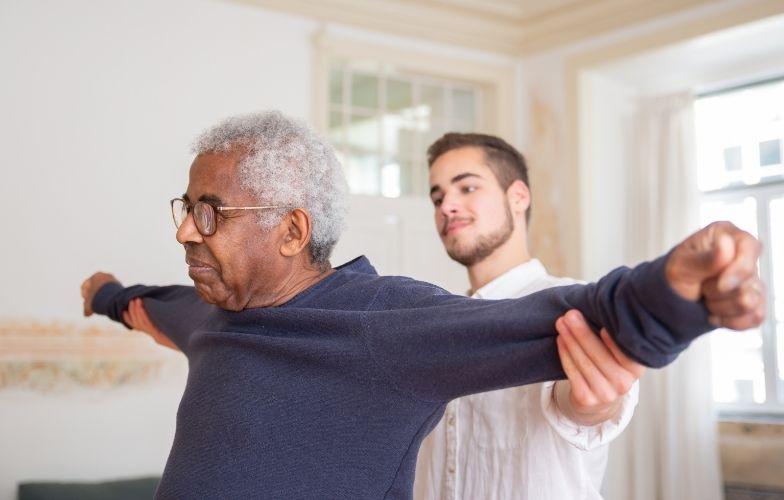As seniors age, many prefer to stay in the comfort of their own homes rather than move to an assisted living facility or nursing home. However, aging comes with challenges that may require additional support, such as help with daily activities, medical needs, or companionship. Finding the right options for elderly care at home is crucial for ensuring seniors receive the assistance they need while maintaining their independence and quality of life. Elderly home care services vary based on individual needs, ranging from basic companionship and housekeeping to skilled nursing and specialized medical care. Some seniors may only need part-time assistance, while others require round-the-clock support. Families must carefully assess their loved one’s physical, emotional, and medical requirements to choose the best home care option.
The most common options for aged people care at home include in-home caregivers, home health aides, skilled nursing care, and respite care. Additionally, advancements in technology have made remote monitoring and telehealth services more accessible, allowing seniors to receive medical consultations from home. These services ensure seniors remain safe, comfortable, and engaged while easing the burden on family caregivers. This article explores the top home care options available for seniors, their benefits, and how families can determine the right choice. By understanding these options, families can make informed decisions that provide aging loved ones with the highest level of care while allowing them to age in place with dignity and comfort.
Best Options for Elderly Care at Home to Ensure Comfort
1. In-Home Caregivers for Personalized Assistance
One of the most popular options for elderly people to care at home is hiring an in-home caregiver. These professionals provide non-medical assistance with daily activities such as meal preparation, light housekeeping, bathing, dressing, and companionship.
Key Benefits:
- Personalized support tailored to the senior’s needs
- Assistance with daily living tasks for improved comfort
- Emotional and social engagement to reduce loneliness
- Flexible scheduling options, from part-time to full-time care
2. Home Health Aides for Basic Medical Assistance
Home health aides offer more specialized assistance than general caregivers. While they provide personal care, they also help with basic medical needs, such as monitoring vital signs and medication reminders.
Key Benefits:
- Helps with grooming, mobility, and personal hygiene
- Provides medication reminders and basic health monitoring
- Supports individuals recovering from illness or surgery
- Works under the supervision of a healthcare professional
3. Skilled Nursing Care for Medical Needs
For seniors with chronic illnesses or serious medical conditions, options for elderly care at home include skilled nursing care. Registered nurses or licensed practical nurses provide medical treatments, wound care, and specialized health monitoring to ensure seniors receive professional healthcare in the comfort of their homes.
Key Benefits:
- Expert medical treatment in the convenience of one’s own home
- Assistance with post-surgery recovery and chronic conditions
- Medication management and administration
- Reduces hospital visits by providing care at home
4. Respite Care for Family Caregiver Relief
Family members often take on the responsibility of caring for aging loved ones. However, caregiving can be demanding, and respite care provides temporary relief by offering professional caregiving services on a short-term basis.
Key Benefits:
- Prevents caregiver burnout by offering temporary assistance
- Allows family members to take breaks while ensuring senior care
- Provides flexible options, from a few hours to several days
- Ensures continuity of care in emergencies or vacations
5. Companion Care for Social Engagement
Seniors living alone often experience loneliness and isolation. Among the options for elderly care at home, companion care focuses on providing emotional support, engaging seniors in social activities, and helping with non-medical tasks to enhance their well-being.
Key Benefits:
- Enhances emotional well-being and reduces loneliness
- Encourages participation in hobbies and social outings
- Provides transportation for errands and appointments
- Offers companionship through conversations and shared activities
6. Telehealth and Remote Monitoring for Safe Aging
With advancements in technology, seniors can now receive medical consultations from home through telehealth services. Remote monitoring devices track vital signs and alert caregivers or medical professionals in case of emergencies.
Key Benefits:
- Provides access to medical professionals without leaving home
- Monitors health conditions through wearable technology
- Offers emergency alerts and fall detection features
- Supports independent living with added safety measures
7. Hospice and Palliative Care for Comfort and Dignity
For seniors with terminal illnesses or those needing end-of-life care, hospice and palliative care services provide comfort, pain management, and emotional support. These services focus on enhancing quality of life during the final stages.
Key Benefits:
- Pain and symptom management for terminally ill seniors
- Emotional and psychological support for seniors and families
- Assistance with advance care planning and decision-making
- Ensures dignity and comfort in a familiar home environment
Choosing the Right Options for Elderly Care at Home
Selecting the best options for elderly people’s care at home depends on the senior’s specific needs, health conditions, and personal preferences. Families should consider factors such as the level of assistance required, budget, and availability of professional caregivers. Consulting with healthcare providers or senior care specialists can help determine the most suitable care plan.
To conclude, elderly home care services provide seniors with the necessary support to maintain their independence while receiving essential assistance. From in-home caregivers and skilled nursing care to telehealth and hospice services, the options for elderly care at home cater to a wide range of needs. These services enhance the quality of life for seniors, ensuring they receive personalized care in a familiar environment. For families, choosing the right home care option requires careful evaluation of their loved one’s health, lifestyle, and preferences. Whether the need is for daily assistance, medical care, or companionship, home care solutions offer flexibility and comfort. By exploring the best options for elderly people care at home, families can ensure their loved ones age with dignity, safety, and happiness while enjoying the familiarity of their home.

